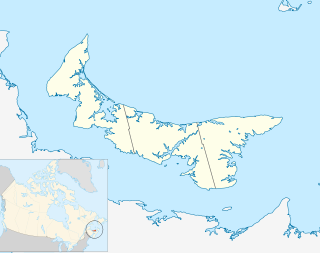
Jurisprudence or legal theory is the theoretical study of law. Scholars of jurisprudence seek to explain the nature of law in its most general form and provide a deeper understanding of legal reasoning, legal systems, legal institutions, and the role of law in society.
A tort, in common law jurisdictions, is a civil wrong that causes a claimant to suffer loss or harm, resulting in legal liability for the person who commits the tortious act. It can include the intentional infliction of emotional distress, negligence, financial losses, injuries, invasion of privacy and many other things.
A referendum is a direct and universal vote in which an entire electorate is invited to vote on a particular proposal, it can be nationwide or local forms. This may result in the adoption of a new policy or specific law. In some countries, it is synonymous with a plebiscite or a vote on a ballot question.
A brocard is a legal maxim in Latin that is, in a strict sense, derived from traditional legal authorities, even from ancient Rome. The word is a variant of the Latinized name of Burchard of Worms, Bishop of Worms, Germany, who compiled 20 volumes of Ecclesiastical Rules.
International human rights law (IHRL) is the body of international law designed to promote human rights on social, regional, and domestic levels. As a form of international law, international human rights law are primarily made up of treaties, agreements between sovereign states intended to have binding legal effect between the parties that have agreed to them; and customary international law. Other international human rights instruments, while not legally binding, contribute to the implementation, understanding and development of international human rights law and have been recognized as a source of political obligation.
An amicus curiae is someone who is not a party to a case and may or may not have been solicited by a party and who assists a court by offering information, expertise, or insight that has a bearing on the issues in the case; and is typically presented in the form of a brief. The decision on whether to consider an amicus brief lies within the discretion of the court. The phrase amicus curiae is legal Latin.
Legal positivism is a school of thought of analytical jurisprudence largely developed by legal thinkers in the 18th and 19th centuries, such as Jeremy Bentham and John Austin. While Bentham and Austin developed legal positivist theory, empiricism set the theoretical foundations for such developments to occur. The most prominent legal positivist writer in English has been H. L. A. Hart, who, in 1958, found common usages of "positivism" as applied to law to include the contentions that:

Lot 24 is a township in Queens County, Prince Edward Island, Canada. It is part of Charlotte Parish. Lot 24 was awarded to Charles Lee and Francis MacLeane in the 1767 land lottery. It was sold in arrears for quitrent in 1781 and a portion was granted to Loyalists in 1783.
The legal principle of vicarious liability applies to hold one person liable for the actions of another when engaged in some form of joint or collective activity.

North Rustico is a Canadian town located in Queens County, Prince Edward Island.
Nemo judex in causa sua is a Latin phrase that means, literally, "no-one is judge in his own cause." It is a principle of natural justice that no person can judge a case in which they have an interest. The rule is very strictly applied to any appearance of a possible bias, even if there is actually none: "Justice must not only be done, but must be seen to be done".

The Inter-American Dialogue is a U.S.-based think tank in the field of international affairs primarily related to the Western Hemisphere. Headquartered in Washington, D.C it intends to "foster democratic governance, prosperity, and social equity in Latin America and the Caribbean". The Dialogue's research areas focus on the rule of law, education, migration, remittances, energy, climate change and extractive industries.

Lesbian, gay, bisexual, and transgender (LGBT) persons in Panama may face legal challenges not experienced by non-LGBT residents. Both male and female same-sex sexual activity are legal in Panama, but same-sex couples and households headed by same-sex couples are not eligible for the same legal benefits and protections available to opposite-sex married couples.
Oxford University Dancesport Club (OUDC) is Oxford University's largest sports club and is the second largest club at the university after the Oxford Union. Founded in 1968 it currently has an annual membership of around 800 members. It runs professionally taught classes in the following dance styles:

The North Rustico Harbour Light is an active lighthouse on the central north coast of Prince Edward Island, Canada. The station was established in 1876 and the lighthouse itself was built in 1899. It is still active, and has a focal plane of 12.5 m (41 ft); and a yellow light, 5 seconds on, 5 seconds off. The tower itself is 10 m (34 ft) high with a square pyramidal wood tower with lantern and gallery.

The rule of law is defined in the Oxford English Dictionary as: "The authority and influence of law in society, especially when viewed as a constraint on individual and institutional behavior; (hence) the principle whereby all members of a society are considered equally subject to publicly disclosed legal codes and processes." The phrase "the rule of law" refers to a political situation, not to any specific legal rule.

Resort Municipality, officially named the Resort Municipality of Stanley Bridge, Hope River, Bayview, Cavendish and North Rustico, is the lone municipality in Prince Edward Island, Canada that holds resort municipality status. It was established in 1990.

A rustico is an Italian snack of Salento made with puff pastry and a stuffing that varies style by style. A common preparation is puff pastry, tomato and mozzarella. It is part of the Salentine street food tradition and is possible see it in each Apulian bar, bakery and rotisserie.

In Mexico there are no explicit rights reserved to intersex persons, no protections from non-consensual cosmetic medical interventions on intersex children and no legislative protection from discrimination. Intersex persons may have difficulties in obtaining necessary health care.

The diocese of Tetci is a suppressed and titular see of the Roman Catholic Church. An exact location of the town is now lost to history but it was in today's Tunisia.












